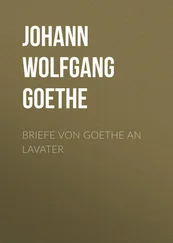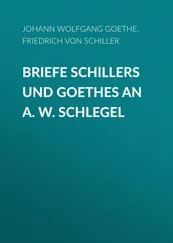Johann von Goethe - The Autobiography of Goethe
Здесь есть возможность читать онлайн «Johann von Goethe - The Autobiography of Goethe» — ознакомительный отрывок электронной книги совершенно бесплатно, а после прочтения отрывка купить полную версию. В некоторых случаях можно слушать аудио, скачать через торрент в формате fb2 и присутствует краткое содержание. Жанр: foreign_antique, foreign_prose, на английском языке. Описание произведения, (предисловие) а так же отзывы посетителей доступны на портале библиотеки ЛибКат.
- Название:The Autobiography of Goethe
- Автор:
- Жанр:
- Год:неизвестен
- ISBN:нет данных
- Рейтинг книги:4 / 5. Голосов: 1
-
Избранное:Добавить в избранное
- Отзывы:
-
Ваша оценка:
- 80
- 1
- 2
- 3
- 4
- 5
The Autobiography of Goethe: краткое содержание, описание и аннотация
Предлагаем к чтению аннотацию, описание, краткое содержание или предисловие (зависит от того, что написал сам автор книги «The Autobiography of Goethe»). Если вы не нашли необходимую информацию о книге — напишите в комментариях, мы постараемся отыскать её.
The Autobiography of Goethe — читать онлайн ознакомительный отрывок
Ниже представлен текст книги, разбитый по страницам. Система сохранения места последней прочитанной страницы, позволяет с удобством читать онлайн бесплатно книгу «The Autobiography of Goethe», без необходимости каждый раз заново искать на чём Вы остановились. Поставьте закладку, и сможете в любой момент перейти на страницу, на которой закончили чтение.
Интервал:
Закладка:
Meanwhile, on those days, the city cavalry in several divisions, each having a commander in front, rode forth from different gates and found on a certain spot some troopers or hussars of the persons entitled to an escort, who with their leaders were well received and entertained. They stayed till towards evening, and then rode back to the city, scarcely visible to the expectant crowd, many a city knight not being in a condition to manage his horse, or keep himself in the saddle. The most important bands returned by the bridge-gate, where the pressure was consequently the strongest. Last of all, just as night fell, the Nuremberg post-coach arrived, escorted in the same way, and always containing, as the people fancied, in pursuance of custom, an old woman. Its arrival, therefore, was a signal for all the urchins to break out into an ear-splitting shout, though it was utterly impossible to distinguish any one of the passengers within. The throng that pressed after the coach through the bridge-gate was quite incredible, and perfectly bewildering to the senses. The houses nearest the bridge were those, therefore, most in demand among spectators.
The Piper's Court.
Another more singular ceremony, by which the people were excited in broad daylight, was the Piper's-court ( Pfeifer-gericht ). It commemorated those early times when important larger trading-towns endeavoured, if not to abolish tolls altogether, at least to bring about a reduction of them, as they increased in proportion with trade and industry. They were allowed this privilege by the Emperor who needed their aid, when it was in his power to grant it, but commonly only for one year; so that it had to be annually renewed. This was effected by means of symbolical gifts, which were presented before the opening of St. Bartholomew's Fair to the imperial magistrate ( Schultheiss ), who might have sometimes been the chief toll-gatherer; and, for the sake of a more imposing show, the gifts were offered when he was sitting in full court with the Schöffen. But when the chief magistrate afterwards came to be no longer appointed by the Emperor, and was elected by the city itself, he still retained these privileges; and thus both the immunities of the cities from toll, and the ceremonies by which the representatives from Worms, Nuremberg, and Old Bamberg once acknowledged the ancient favour, had come down to our times. The day before Lady-day, an open court was proclaimed. In an enclosed space in the great Imperial Hail, the Schöffen took their elevated seats; a step higher, sat the Schultheiss in the midst of them; while below on the right hand, were the procurators of both parties invested with plenipotentiary powers. The Actuarius begins to read aloud the weighty judgments reserved for this day; the lawyers demand copies, appeal, or do whatever else seems necessary. All at once a singular sort of music announces, if we may so speak, the advent of former centuries. It proceeds from three pipers, one of whom plays an old shawm , another a sack-but , and the third a pommer , or oboe. They wear blue mantles trimmed with gold, having the notes made fast to their sleeves, and their heads covered. Having thus left their inn at ten o'clock, followed by the deputies and their attendants, and stared at by all, natives and strangers, they enter the hall. The law proceedings are stayed – the pipers and their train halt before the railing – the deputy steps in and stations himself in front of the Schultheiss. The emblematic presents, which were required to be precisely the same as in the old precedents consisted commonly of the staple wares of the city offering them. Pepper passed, as it were, for everything else; and, even on this occasion, the deputy brought a handsomely turned wooden goblet filled with pepper. Upon it lay a pair of gloves, curiously slashed, stitched, and tasseled with silk – a token of a favour granted and received – such as the Emperor himself made use of in certain cases. Along with this was a white staff, which in former times was not easily dispensable in judicial proceedings. Some small pieces of silver money were added; and the city of Worms brought an old felt hat, which was always redeemed again, so that the same one had been a witness of these ceremonies for many years.
After the deputy had made his address, handed over his present, and received from the Schultheiss assurance of continued favour, he quitted the enclosed circle, the pipers blew, the train departed as it had come, the court pursued its business, until the second and at last the third deputy had been introduced. For each came some time after the other; partly that the pleasure of the public might thus be prolonged, and partly because they were always the same antiquated virtuosi whom Nuremberg, for itself and its co-cities, had undertaken to maintain and produce annually at the appointed place.
Summer Amusements.
We children were particularly interested in this festival, because we were not a little flattered to see our grandfather in a place of so much honour; and because commonly, on the self-same day, we used to visit him, quite modestly, in order that we might, when my grandmother had emptied the pepper into her spice box, lay hold of a cup or small rod, a pair of gloves or an old Räder Albus. 2 2 An old silver coin.
These symbolical ceremonies, restoring antiquity as if by magic, could not be explained to us without leading us back into past times and informing us of the manners, customs, and feelings of those early ancestors who were so strangely made present to us, by pipers and deputies seemingly risen from the dead, and by tangible gifts, which might be possessed by ourselves.
These venerable solemnities were followed, in the fine season, by many festivals, delightful for us children, which took place in the open air, outside of the city. On the right shore of the Maine going down, about half an hour's walk from the gate, there rises a sulphur-spring, neatly enclosed and surrounded by aged lindens. Not far from it stands the Good-People's-Court , formerly a hospital erected for the sake of the waters. On the commons around, the herds of cattle from the neighbourhood were collected on a certain day of the year; and the herdsmen, together with their sweethearts, celebrated a rural festival, with dancing and singing, with all sorts of pleasure and clownishness. On the other side of the city lay a similar but larger common, likewise graced with a spring and still finer lindens. Thither, at Whitsuntide, the flocks of sheep were driven; and, at the same time, the poor, pale orphan children were allowed to come out of their walls into the open air; for the thought had not yet occurred that these destitute creatures, who must some time or other help themselves through the world, ought soon to be brought in contact with it; that instead of being kept in dreary confinement, they should rather be accustomed to serve and to endure; and that there was every reason to strengthen them physically and morally from their infancy. The nurses and maids, always ready to hike a walk, never failed to carry or conduct us to such places, even in our first years; so that these rural festivals belong to the earliest impressions that I can recall.
Meanwhile, our house had been finished, and that too in tolerably short time, because everything had been judiciously planned and prepared, and the needful money provided. We now found ourselves all together again, and felt comfortable: for, when a well-considered plan is once carried out, we forget he various inconveniences of the means that were necessary to its accomplishment. The building, for a private residence, was roomy enough; light and cheerful throughout, with broad staircases, agreeable parlours, and a prospect of the gardens that could be enjoyed easily from several of the windows. The internal completion, and what pertained to mere ornament and finish, was gradually accomplished, and served at the same time for occupation and amusement.
Читать дальшеИнтервал:
Закладка:
Похожие книги на «The Autobiography of Goethe»
Представляем Вашему вниманию похожие книги на «The Autobiography of Goethe» списком для выбора. Мы отобрали схожую по названию и смыслу литературу в надежде предоставить читателям больше вариантов отыскать новые, интересные, ещё непрочитанные произведения.
Обсуждение, отзывы о книге «The Autobiography of Goethe» и просто собственные мнения читателей. Оставьте ваши комментарии, напишите, что Вы думаете о произведении, его смысле или главных героях. Укажите что конкретно понравилось, а что нет, и почему Вы так считаете.












